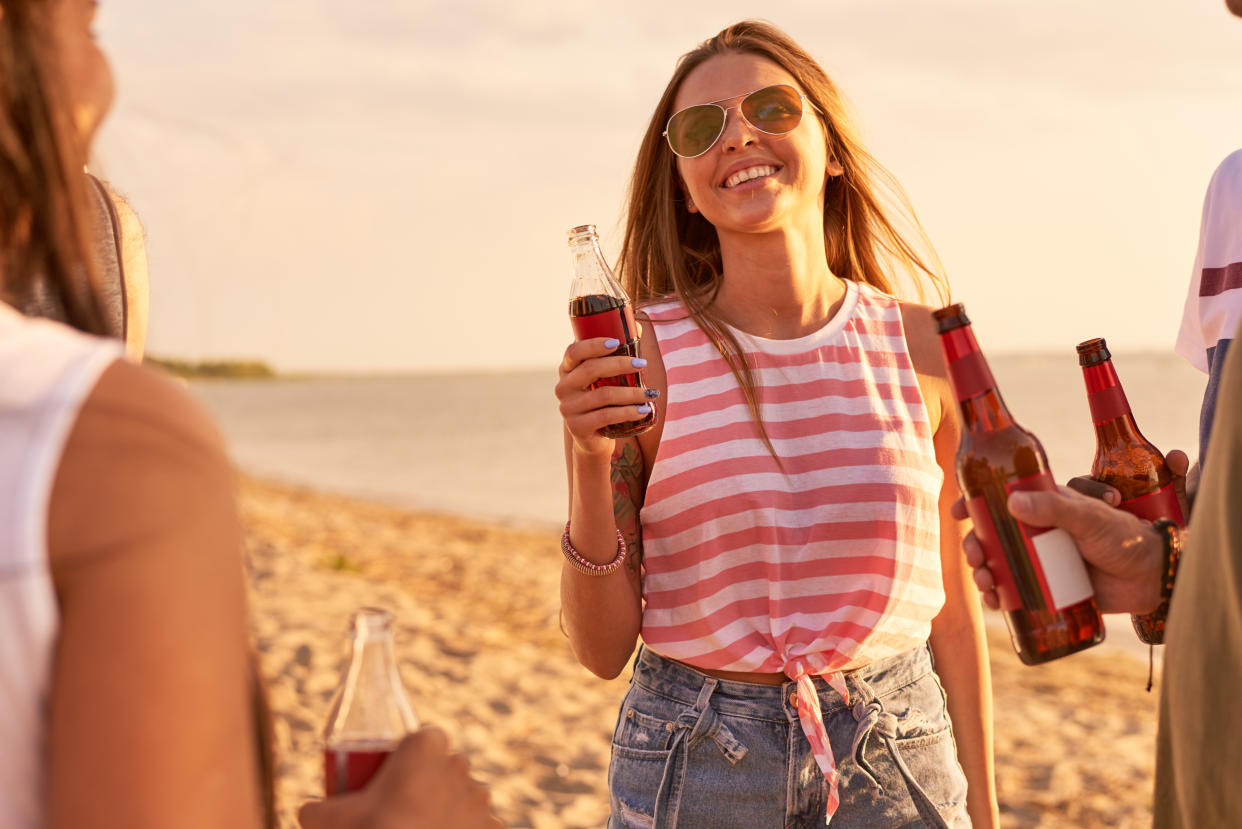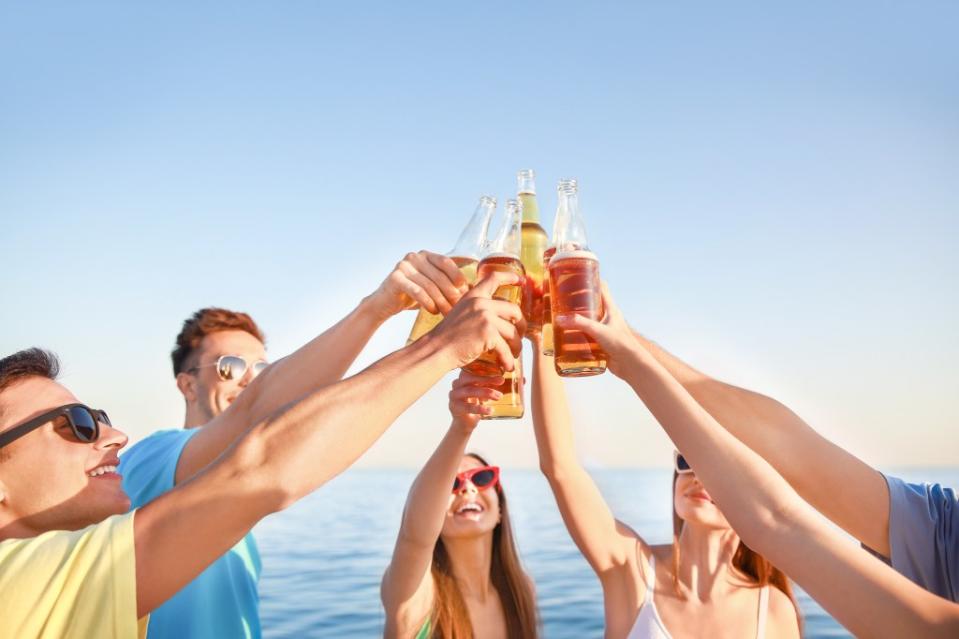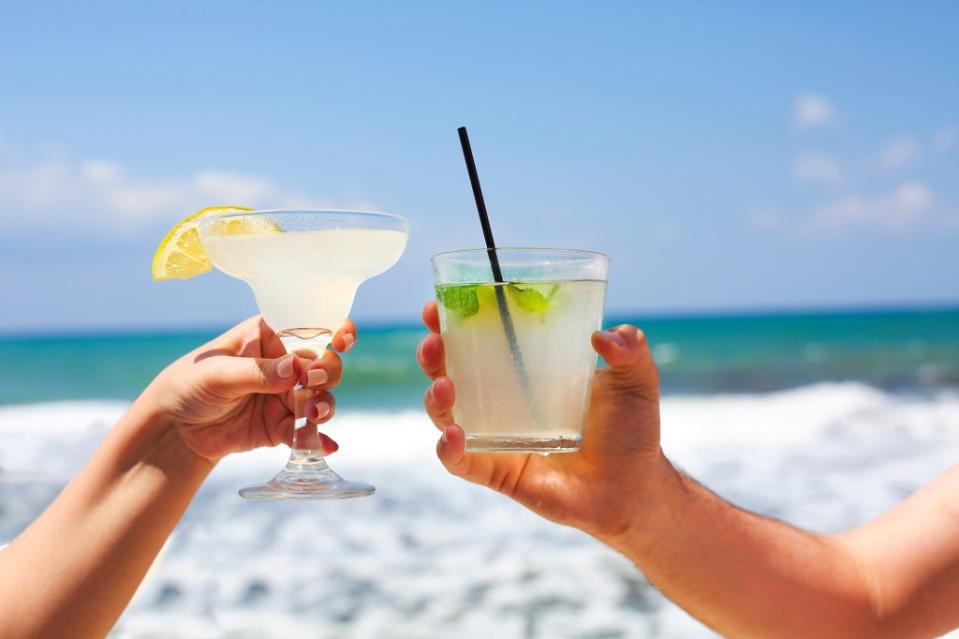How to stay safe this summer when drinking alcohol at the beach

As the weather warms and the days lengthen, many among us head to the nearest body of water — and reach for the booze when we get there.
Be it a beer, a seltzer, a shot of warm whiskey or a poolside margarita, few things sound as enticing as unwinding under the sun with a drink in hand. Yet, experts warn that summer fun poses some serious risks.
Some ways to stay safe while you sip include avoiding swimming or boating, taking care to properly hydrate and keeping tabs on your booze consumption.
Avoid the water if you’re wetting your whistle with alcohol

With the Centers for Disease Control and Prevention reporting an uptick in accidental drownings in the US, it is imperative to be extra cautious when drinking around any water source, particularly if you plan on boating or swimming.
Dr. Shoshana Ungerleider tells Yahoo Life, “Alcohol impairs judgment, coordination, and reaction times … Drowning risks increase significantly with alcohol consumption because a person’s ability to assess their swimming strength and the water’s depth and currents is impaired.”
Ungerleider recommends sun seekers avoid swimming after drinking. Extra care should also be taken when drinking aboard a vessel, as intoxicated passengers are more likely to get injured or drown.
The National Institute on Alcohol Abuse and Alcoholism reports that 60% of boating fatalities may involve alcohol.
Experts say that you should never ride in a boat with someone who is under the influence. According to the Coast Guard, a boat operator with a blood alcohol concentration above .10% is 10 times more likely to die in a boating accident than a sober captain.
Hydrate to dominate, snack to survive

Alcohol is a diuretic, and as anyone who has ever “broken the seal” can attest, it causes our bodies to expel fluids at a more rapid rate, leading to dehydration.
When we combine these diuretic properties with intense sunshine, it’s something of a double threat that can easily tip us into the territory of heat exhaustion or heat stroke. Symptoms of these conditions include dizziness, fainting and headaches.
Dr. David Deyhimy, an addiction medicine specialist and anesthesiologist, provided Yahoo Life with several ways to combat dehydration and sunstroke.
He recommends hydrating with non-alcoholic beverages before consuming alcohol, eating a large meal before drinking and applying sunblock before stepping outside.
Once you’ve taken your first sip, you can take care of yourself by sticking to the shade, diluting your alcoholic beverages with juice or water, snacking throughout the day to slow your body’s absorption of alcohol and alternating between boozy bevvies and NA drinks.
Keep tabs on your tipples

The CDC advises men limit alcoholic drinks to two a day, while women shouldn’t drink more than one.
Further, binge drinking is defined as consuming five or more standard drinks (for men) or four or more (for women) within the space of two hours.
Maintaining your limits can be hard to manage at any time but especially during summertime day drinking — pouring drinks from a pitcher and replacing warm, half-empty beers with cold ones can make it difficult to keep track of your consumption.
Being conscious of how much you’re tipping back can save you from a soul-crushing hangover in the immediate future and serious health risks in the long run.

